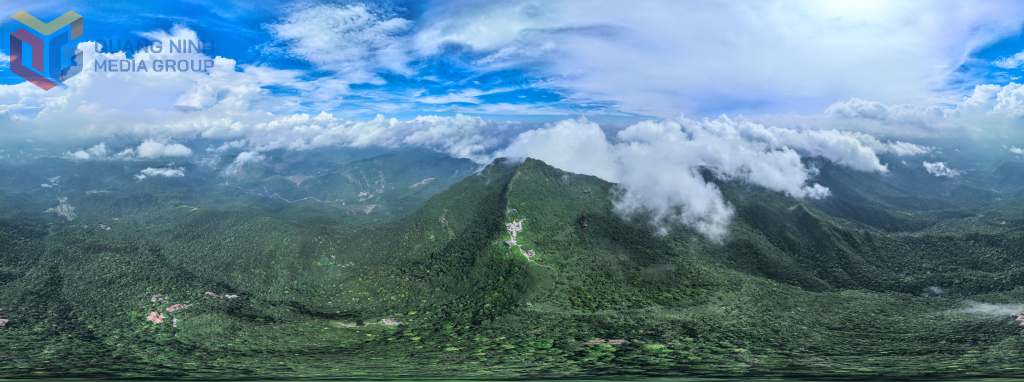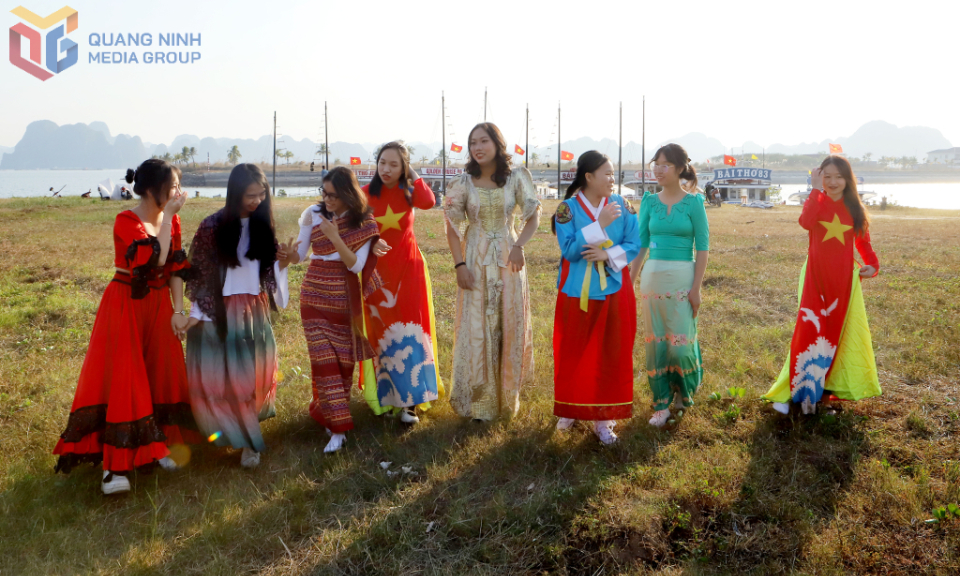The imprint of Yen Tu in the poetry of King-Monk Tran Nhan Tong
On his spiritual journey toward enlightenment, Yen Tu became an indelible part of King-Monk Tran Nhan Tong’s life, not only shaping his years of monastic practice but also leaving a profound mark on the literary legacy he bequeathed to posterity. The imprint of Yen Tu in his poetry reflects a deep and inseparable connection between this sacred mountain and his Zen Buddhist philosophy, as well as his soul as a poet.
With its rugged terrain and mist-veiled peaks, Yen Tu had long been a refuge for monks and hermits. Yet it was only when Tran Nhan Tong chose it as his place of retreat and founded the Truc Lam Zen sect that Yen Tu truly emerged as a major Buddhist center and a sacred sanctuary of Vietnamese Buddhism. From Yen Tu, the Truc Lam Zen tradition spread across the country, helping to shape the cultural and intellectual identity of Dai Viet during the Tran dynasty.
Although his surviving body of poetry is not extensive, Tran Nhan Tong’s works carry profound philosophical and artistic value, clearly reflecting both his meditative spirit and his deep bond with Yen Tu.
The mountain is not merely a backdrop in his poems. It becomes a living, breathing space imbued with spiritual meaning. His verses capture not only the grandeur of Yen Tu’s natural landscape but also the essence of Zen thought, the spirit of engagement with the world, and the aspiration for enlightenment.
In poems such as Son Phong Man Hung (“Reflections in a mountain hut”), he writes:
“Above the peak, clouds drift; below the peak, the wind blows.
Boundless scenery stretches on without end.
Half a lifetime in the world, my heart untainted
One night, the pines sing beneath a moon-filled sky.”
These lines do more than depict Yen Tu’s majestic beauty which reveal the serene, unattached state of a monk in harmony with nature. The sound of wind through pines under the moonlight is both a natural melody and a metaphor for enlightenment, a merging of the self with the cosmos.
Another poem, Song of attaining the way in the forest and stream, paints an equally vivid picture:
“In forest and stream, joy awakens the mind to the Way.
Worldly scenes drift like clouds, like fleeting dreams.
Moonlight bathes the pines, a place of pure stillness.
Clouds wander over the ocean’s edge. How free it is!”
Such imagery, forests, streams and moonlit pines, directly evokes the meditative landscape of Yen Tu.
For Tran Nhan Tong, poetry was never mere description. It was a vessel for conveying the profound Zen philosophy of the Truc Lam tradition: enlightenment through detachment from worldly bonds and immersion in nature. His works often explore the impermanence of life, the illusory nature of fame and wealth, and the freedom that comes with spiritual awakening.
In his poem Instant realization, he reflects:
“Worldly affairs are like drifting clouds.
Life itself, a fleeting dream.
Fame and gain, bubbles on water.
Only enlightenment is true.”
Of the 37 surviving poems attributed to him, flowers are mentioned 20 times. Particularly notable are three poems including Plum Blossom, Early Plum Blossom I, and Early Plum Blossom II. Each dedicated to the golden plum blossoms of Yen Tu, reflecting his deep philosophical contemplation through a simple yet potent natural image.
Ultimately, Yen Tu was more than a setting for Tran Nhan Tong. It was the spiritual home where he found peace, deepened his practice, and reached the highest realms of Zen. His poems about Yen Tu are at once paeans to its beauty and meditations on the path to enlightenment, offering timeless insight into the union of nature, art, and spiritual realization.






